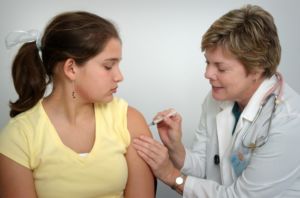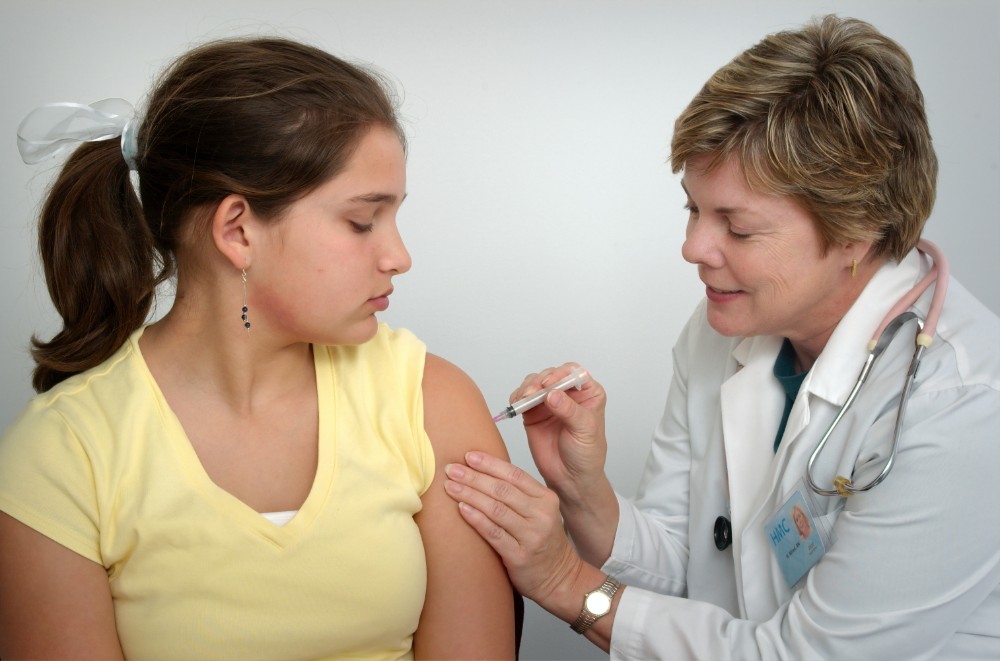
Vaccines are a hot topic right now. The COVID-19 pandemic brought them to the forefront of public consciousness, but there was concern about vaccine safety and effectiveness even before that. As a teacher, you may get questions from students and parents about vaccines and you may wonder about them yourself: are they, in fact, safe? What do I tell parents about them? Is there anything that I need to receive as an adult (aside from flu and COVID-19 shots)? It’s an important topic to learn about and discuss! One of the first things that people wonder about is vaccine safety. It’s worth saying up front that vaccines are very safe. In fact, according to one study, they are among the safest medical products in existence. There are multiple rounds of production and testing that vaccines must pass through before licensure, and there are robust surveillance systems in the United States and elsewhere in the world to detect notable increases in adverse effects. In rare instances when a vaccine causes troublesome side effects, the vaccine is typically pulled from the market for further analysis. An example of this was the Janssen COVID-19 vaccine. When surveillance indicated that six women developed blood clots after receiving this vaccine, it was not administered until more analysis was done on side effects post-administration.
Vaccines are essential to keeping our schools and communities healthy.
In addition to vaccine safety, most people want to know how effective vaccines are. Are they really worth it? Efficacy varies between vaccines, but in the case of many vaccines, it’s over 90%. This means that, in a sample population, 90% fewer of the vaccinated population will contract the disease than the unvaccinated population (World Health Organization). In addition, in the case of many vaccine-preventable diseases, even if a vaccinated person is infected with the virus in question, they will typically experience milder symptoms of the disease than an unvaccinated individual. We see this now with COVID-19 and the omicron variant. While breakthrough cases do occur among vaccinated people, they’re still at a much lower risk of hospitalization and death than those not vaccinated (Association of American Medical Colleges). You may be wondering what you can tell your students about vaccines and what you need to be concerned about as an adult. Let’s start with you. As an adult, you will want to be sure you are up to date on your childhood vaccines (polio, measles, tetanus, etc.); thankfully, most children born in the United States since the 1960s have received the bulk of the childhood vaccines. If you were born in the United States before 1994, you may not have received Hepatitis A vaccine and will want to consider it; all adults 19 to 59 years old should receive Hepatitis B vaccine. The HPV vaccine can prevent six types of cancer (caused by the Human Papillomavirus, or HPV) and can be received through age 45; this is a vaccine you want to receive. Young adults should receive Meningitis ACWY vaccine (through age 26) and Meningitis B vaccine (through age 23). Once you reach age 50, you will receive a Shingles vaccine, and those at age 65 will receive one dose of pneumococcal vaccine (two doses for some people with special health conditions). Finally, all adults should get an annual flu shot (the flu kills as many as 50,000 people per year in the United States).
Adults need vaccines, too.
The number of vaccines your students will need depends on their age. A large portion of childhood vaccines are completed by kindergarten. Still, once children are later into elementary school, they will need to receive an HPV vaccine (it can be received as young as 9 years old), Meningitis ACWY, Meningitis B, and Tdap (Tetanus, Diptheria, Pertussis). As with adults, all school-age children (in fact, everybody six months and older) should receive an annual flu shot. In Indiana, there are several places that children and adults can receive vaccines, including private doctors, dentists (those who carry vaccines), community health centers, local health departments, and pharmacies (down to age eleven, though with a doctor’s prescription it can be any age). All children under nineteen years old who are on Medicaid, uninsured, or underinsured are eligible for the Vaccines For Children (VFC) program, which would mean there is no cost for receiving vaccines. Families of children in the VFC program can contact their local health department or the Indiana Immunization Coalition to find out where they can receive vaccines. Vaccines are essential to keeping our schools and communities healthy. While we often associate them with childhood, adults need vaccines, too. Please keep yourself and your students healthy by taking the simple step of getting vaccinated!
Resources
Please login or register to claim PGPs.
Alternatively, you may use the PGP Request Form if you prefer to not register an account.



